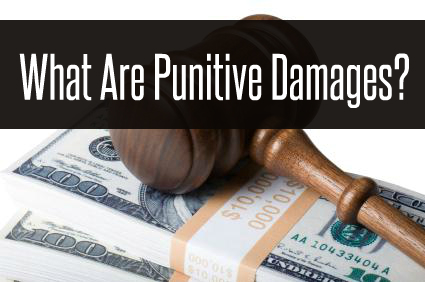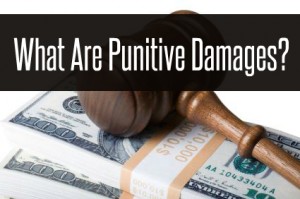
 What Are Punitive Damages
What Are Punitive Damages
You have probably heard the term “punitive damages” in the news, especially in connection with large civil lawsuits. But what exactly are punitive damages? Basically, punitive damages are civil damages intended to punish a party for egregious behavior. This is a stark deviation from the principle behind most court damage awards, which are intended to place an aggrieved party in the position that they would have been if a defendant had not interfered in some way.
By ordering a party to pay punitive damages, there is the hope that it will prevent or deter the party from engaging in further conduct which originally resulted in the punitive damages. However, there is a general rule that punitive damages may not be awarded for breach of contract cases. Additionally, there are limits to when punitive damages may be awarded. For example, punitive damage amounts that are too high in relation to the compensatory damages (the verifiable amount of loss to the party) may be deemed unconstitutional.
In BMW of North America v. Gore, the United States Supreme Court held that a punitive damages award of $4 million when there was only $4,000 in compensatory damages was excessively high, on the grounds that it violated the Due Process clause of the Constitution. 517 U.S. 559 (1996). The Court further reasoned that in deciding whether punitive damages violated the Due Process clause, three factors would be considered: (1) the reprehensibility of the conduct, (2) the ratio between the punitive damages and compensatory or actual damages, and (3) a comparison of the punitive damage award to any civil or criminal penalties that could be levied for similar conduct.
As with most other things in the law, this test is inherently subjective, so no set ratio between punitive and compensatory damages exists for concluding whether punitive damages are unconstitutionally excessive or not. As a general rule, punitive damages up to three times the amount of compensatory damages are likely to be constitutional, but punitive damages ten times or more of the amount of compensatory damages are likely to be unconstitutional.
For additional information about civil litigation in the Michigan or North Carolina, please contact us.




